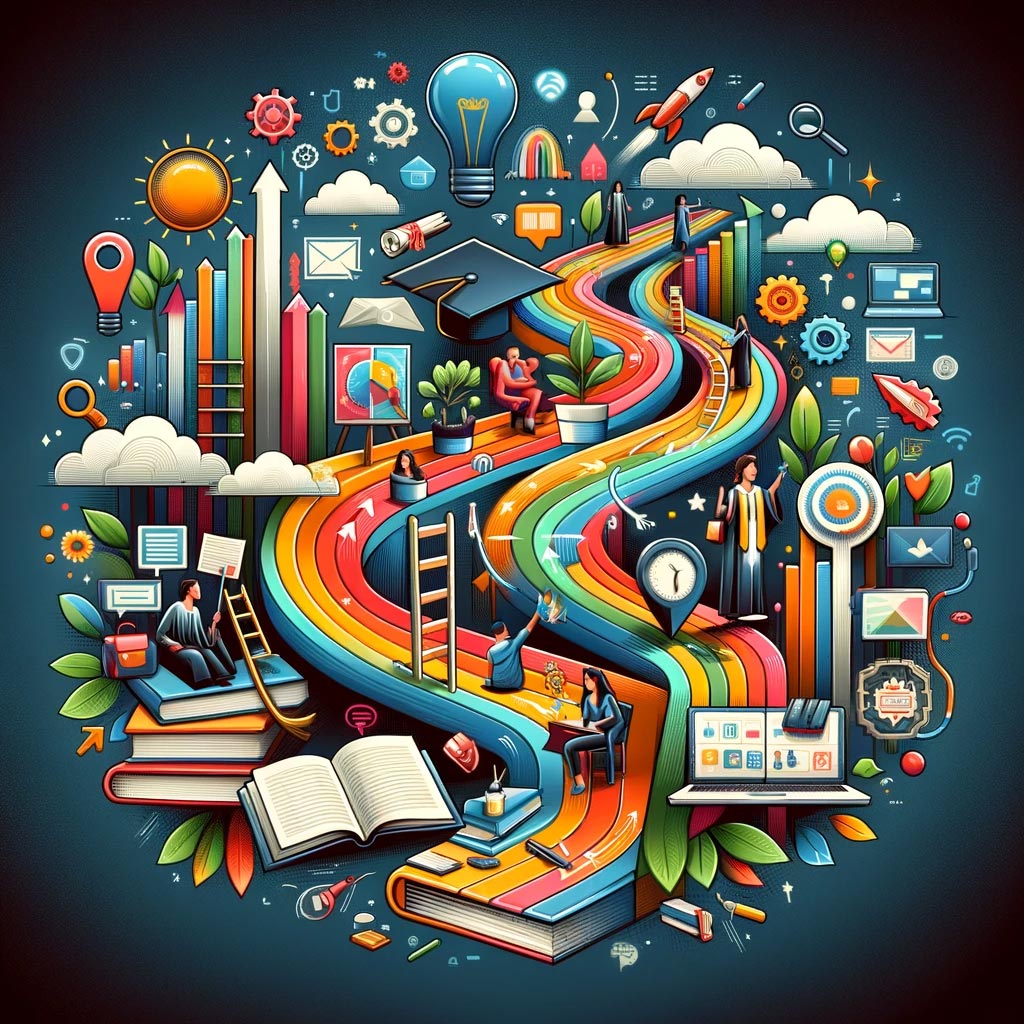
How Education Shapes Career Paths: Key Insights and Trends
Introduction
In today's ever-evolving job market, the relationship between education and career development has become a focal point for students, educators, and policymakers alike.
This article delves into how various educational paths, from vocational training to higher academic achievement, significantly influence career choices and progression. Catering to students, career advisors, HR professionals, and policymakers, we aim to comprehensively understand this critical relationship backed by current trends, case studies, and data-driven insights.
The Role of Education in Shaping Career Opportunities
Formal Education and Career Development
Higher education, including bachelor's, master's, and doctoral degrees, often leads to better job prospects and earning potential. Statistics show that individuals with higher educational attainment tend to have lower unemployment rates and increased job stability.
An analysis of LinkedIn profiles reveals a direct correlation between higher education levels and managerial or executive positions within organizations.
Vocational Training: A Practical Approach
Vocational training offers hands-on experience and skill development directly aligned with specific trades and industries. This path is crucial for manufacturing, healthcare, and information technology sectors.
The success story of a vocational school graduate who becomes a sought-after automotive technician underscores the value of skill-specific education.
The Impact of Online Learning and Certifications
Online courses and certifications have democratized access to education, allowing individuals to enhance their skills or pivot careers without committing to traditional degree programs.
Many employers recognize and value certifications from reputable online platforms, bridging the gap between formal education and vocational training.
The Intersection of Education and Career Choice
Understanding Career Aspirations
Choosing an educational path that aligns with personal interests and career aspirations is crucial for long-term job satisfaction and success.
Experts suggest that self-assessment tools and career counseling can significantly aid in making informed educational choices.
The Role of Higher Education in Career Advancement
Advanced degrees often lead to higher-level positions and specialized roles, particularly in academia, research, and professional services.
According to a recent study, individuals with master's degrees earn, on average, 20% more than those with only bachelor's degrees.
Vocational Training and the Job Market
There is a growing demand for skilled tradespeople, and vocational training directly addresses this need, often leading to immediate job opportunities post-completion.
Industry leaders highlight the need for vocational education to address skill gaps in various sectors.
Lifelong Learning: The Key to Continuous Career Development
Embracing Lifelong Learning
In a rapidly changing job market, ongoing learning and skill development are essential for career longevity and adaptability.
"Education is not preparation for life; education is life itself." - John Dewey.
The Role of Professional Development
Engaging in professional development opportunities, including workshops, seminars, and networking events, is vital for staying relevant.
A mid-career professional enhances their career prospects through targeted professional development courses, significantly promoting them.
Policy Implications and Future Directions
Education Policy and Workforce Development
Policies that support diverse educational pathways, including funding for vocational programs and student loan reforms, play a critical role in shaping the workforce.
Emerging technologies and the global economy will likely influence educational policies and career landscapes.
The role of educators and institutions
is that schools and universities must adapt curricula to meet the changing demands of the job market, focusing on academic rigor and practical skills.
Educators emphasize the importance of fostering critical thinking, creativity, and adaptability in students to prepare them for a dynamic workforce.
Conclusion
The interplay between education and career choices is intricate and multifaceted. From academic pursuits to vocational training, our educational paths have profound implications on our career trajectories.
By staying informed and embracing lifelong learning, individuals can navigate this landscape more effectively, ensuring that their educational choices align with their career aspirations and the needs of the evolving job market.
Career Options Career Development




